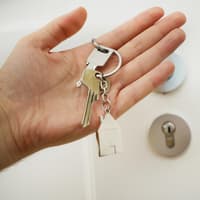
Taxes and pensions
Deadline extended
It's mid-May again and your tax return isn't ready yet? In 2018, you'll have to step on the gas again, but not the year after. Officially, the deadline will be extended from next year, meaning that you don't have to submit your tax return for 2018 until July 31, 2019. Nothing will change for anyone who has the work done by a tax advisor.
Tax allowances are higher
Taxpayers will also benefit from changes to their tax-free allowances: the basic tax-free allowance will be increased by 180 euros to 9,000 euros, while the child allowance will rise by 72 euros to 4,788 euros.
A plus for the Riester pension
Since 2002, there has been the Riester pension, a state-subsidized supplementary pension plan that is specially tailored to employees with low incomes and children - in other words, it is particularly popular with women. The basic allowance has now risen from 154 euros to 175 euros.
Travel
Mallorca tax doubled
One of the really bad news for the new year: the so-called "Ecotasa" is doubling. In 2018, it will be 4 euros in five-star hotels, 3 euros in three- and four-star hotels and 1 euro in hostals during the high season. Cruise passengers pay 2 euros without exception. Residents pay 2 to 4 euros for apartments, depending on the standard. Children under the age of 16 pay nothing.
Data storage for flights
From May, up to 20 different data records of flight passengers will be stored for five years. Route, address, telephone number, name, seat, IP address - everything will be stored in a central office at the Federal Criminal Police Office. This applies to scheduled and charter flights.
Free streaming
Following the abolition of roaming charges in the EU in 2017, it will also be possible to stream free of charge from March 20. If you have subscribed to Netflix or Spotify, you can use them anywhere in the EU without additional charges.
Car and traffic
Tires only with snowflakes
From the turn of the year, the M&S marking on car tires alone will no longer be sufficient. From now on, tires, whether winter or all-season models, must bear a snowflake symbol. But there is a transitional period: M&S tires manufactured by 31 December 2017 may still be used until 30 September 2024.
Fines for incorrect tires
Anyone driving with unsuitable tires on snow and black ice will be punished more severely from the new year. Instead of the previous 60 euros, it is now 75 euros and one point in Flensburg.
E-Call now mandatory
From April 1, e-call systems must be installed in all new cars. This is an emergency call system that is automatically triggered in the event of an accident.
Banks and facilities
EC card gone, money gone
If your debit card is stolen and money has already been withdrawn before you have had it blocked, you are now liable for 50 (instead of 150) euros. An exception is still made if you were grossly negligent.
Pay in a flash
Lightning-fast payments have also been announced for Germany for the summer. It takes 10 to 15 seconds for the money to change hands.
Returning weapons
Have you perhaps inherited a gun as part of your new property? What do you do with it if you don't have a gun license yourself? The best thing to do is hand it in to the police. The deadline for returning weapons without penalty is July 6, 2018.
Building and living
Application for renewable energy
Do you want to install a solar or photovoltaic system, a heat pump or a pellet heating system in your home? Then you now have to follow a specific procedure if you want to receive subsidies. First of all, you have to submit an application to the Federal Office of Economics and Export Control in Eschborn and wait for approval. Of course you can plan during this time, but you cannot place an order with a company yet. Otherwise that's it for the subsidy.
Protection for builders
Are you planning to build a house? Then you should know about the new regulation in building contract law. From the new year, builders will receive a building specification with detailed information on energy and sound insulation standards. This gives them the opportunity to better compare offers before the contract is signed and to see the specific conditions for subsidies. It also serves as a document for applying for a loan.
Hartz IV: rent subsidy increases
For people living alone, the monthly subsidy will increase by 39.50 to 404 euros, for a two-person household to 472.20 euros. What is completely new is that those who have lived in an apartment for more than ten years may exceed the fixed guideline value by ten percent.
Children and maternity leave
At night, on Sundays and public holidays
Until now, expectant and breastfeeding mothers were generally not allowed to work at night or on Sundays and public holidays. This is now changing, at least a little. From January 1, they will be allowed to work from 8 pm to 10 pm. However, this is only possible if both parties, especially the pregnant woman, agree, the doctor allows it and the responsible supervisory authority approves. Expectant mothers are also allowed to work on Sundays and public holidays, but not alone.
Miscarriage and disability
For women who suffer a miscarriage after the twelfth week of pregnancy, a special protection against dismissal of four months applies from the new year - just like in the case of a planned pregnancy. And mothers who give birth to a disabled child have longer maternity protection: instead of the usual eight weeks, it is twelve.
Women in education
All pregnant women who are still at school or studying are now also entitled to maternity leave. They are exempt from compulsory events during these weeks. Only the self-employed and managing directors of so-called legal entities, such as limited liability companies, are still exempt from maternity protection. And something else remains as it was: the Maternity Protection Act does not apply to adoptive mothers and women in same-sex relationships who are not carrying a child themselves.
Workplace must be safe
By the end of 2018, employers must inspect all workplaces in their companies to determine whether pregnant women or breastfeeding mothers can work there safely. It does not matter whether the workplace is currently occupied by a woman or a man. For the boss, this means checking every workplace. If there is a potential hazard in any form, the employer must redesign the workplace with protective measures. If this is not possible or only possible with disproportionate effort, the pregnant woman must be moved to another position.
Child benefit: plus 2 euros
Two euros more for each child. This means: 194 euros each for the first two children, 200 euros for the third and 225 euros from the fourth child onwards. The entitlement starts from the month of birth. However, you can only apply for child benefit retroactively for six months. Previously, this was possible for one year. So: get your application in quickly.






